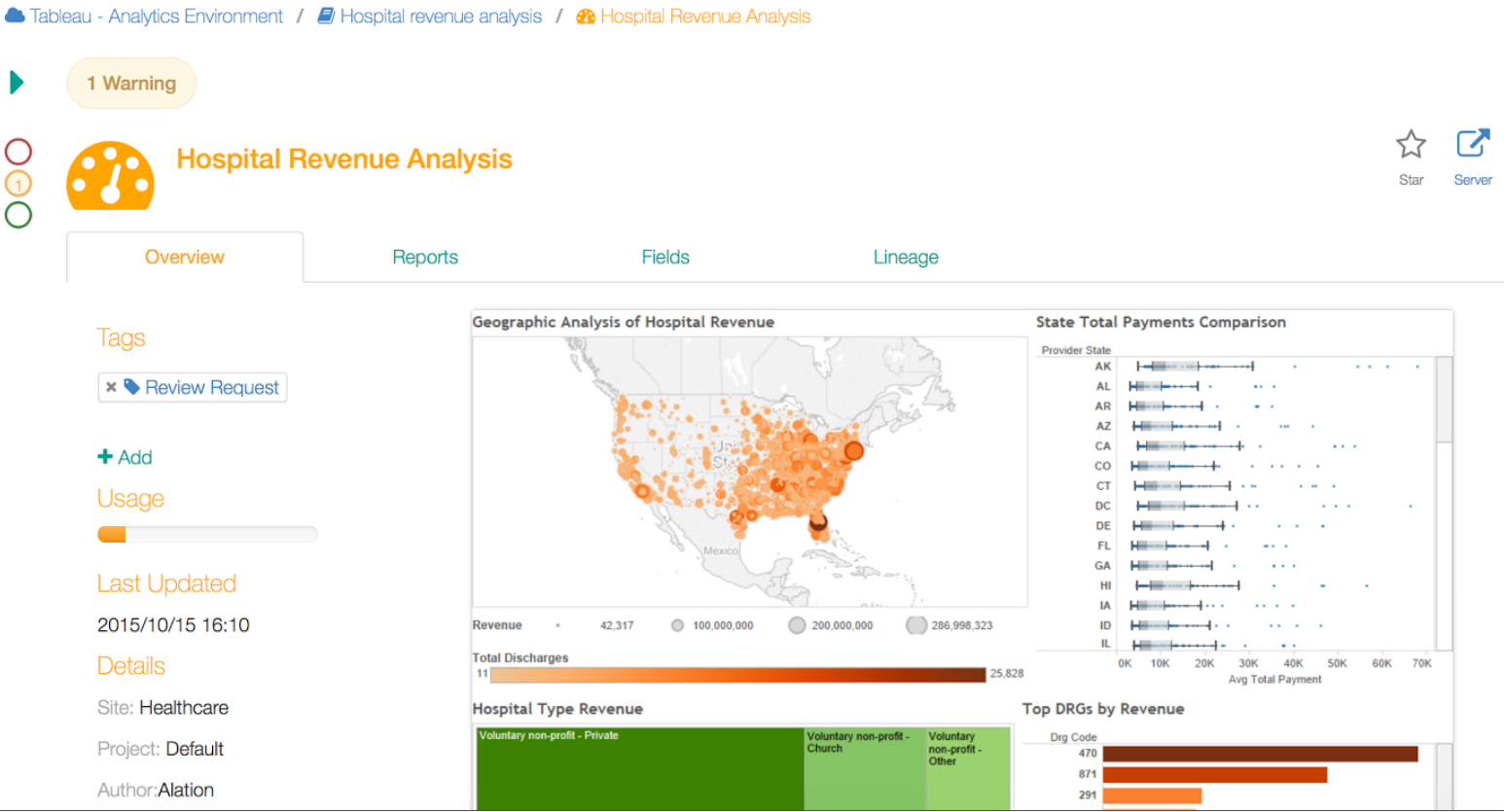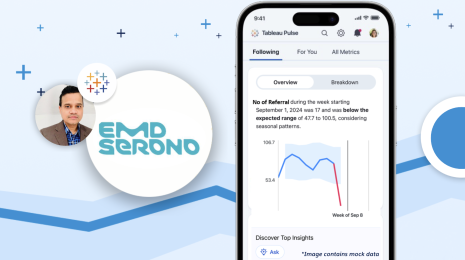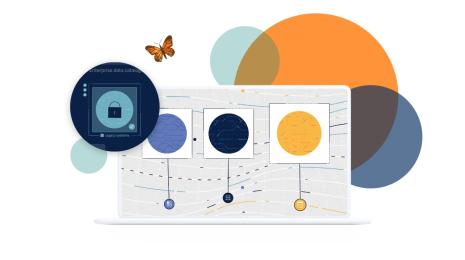Governance at scale with Tableau and Alation: GoDaddy’s story
The key to any enterprise-wide analytics solution is trust in the data being used to drive decisions.
Historically, this trust has come at the expense of access to data. Both the data itself and the resulting reports were locked down, and only a handful of people had access in the entire organization.
But this model can’t adequately meet the needs of today’s data-hungry workforce. And in many ways, the rapid adoption of Tableau we’ve seen across companies of all sizes is a testament to the growing need for self-service analytics.
Trust and governance in the data has always been central to our approach, both in our development of Tableau as well as our guidance for deployment of analytics at scale.
With Tableau Server’s Data Server, users can publish new data sources to a central server where they can be shared and managed for use across the organization.
That openness around data models fuels adoption while providing the analytics-platform administrators with a number of governance and oversight capabilities.
When we see great stories of customers leveraging powerful tools and best practices to drive adoption of analytics at scale, it’s something we like to highlight to our community and help share those learnings. GoDaddy is doing just that with Tableau and our data cataloguing partner, Alation.
Alation provides a complement to Tableau’s approach around data governance by allowing end users to easily discover data from multiple sources and deeply understand the nuances of that data. Alation does this in a uniquely automated way by crawling and cataloguing not only the data available in an organization but also the business semantics used in analysis as well as the logic embedded in SQL queries.
At the same time as improving analyst productivity, Alation also uses this automated foundation of data knowledge to provide the platform administrators with deep lineage and impact analysis of the source data in their users’ Tableau workbooks.
How GoDaddy uses Tableau and Alation
With hundreds of data sources spread across tens of platforms and over 850 Tableau Server users, the team at GoDaddy needed a better way to govern self-service analytics at scale. So Sharon Graves, a Tableau evangelist and system admin at GoDaddy, took on the challenge.
“We had data on multiple server platforms,” Sharon says. “Within that, we had multiple replications of that data. We had calculated fields that weren’t documented. From a BI perspective, we had no real truth of saying, ‘OK, yes, this is exactly what I need to use to do my reporting.’”
Sharon says the lack of governance in data sources seriously impacted the team’s ability to gain insight from data.
“Analytics and data discovery wasn’t what you thought. It wasn’t digging into data and seeing, ‘Oh, let’s see these anomalies.’ It was, ‘Go find this data and figure out what it is and how we can use it.’ It wasn’t as much fun as you would think,” she says.
GoDaddy's IT team needed a better way to govern its data sources. The team was using MySQL, MSSQL, Cassandra, Hive, Pig, Spark, and third-party data systems like Google Analytics and LinkedIn. Analysts spent all their time trying to figure out which fields in which data sources they should use, and not enough time doing meaningful analysis. It was frustrating and slow.
So GoDaddy decided to use Alation with Tableau. Together, Alation and Tableau empowered GoDaddy's IT team to govern Tableau at scale: to catalog and tag data, to examine the lineage of a table, to search multiple data sources for a field, and to increase visibility and control.
In its search feature, Alation shows the top users of each data source so you know which internal resources you can ping for further help. Alation works seamlessly with Tableau, making it easy to publish to Data Server and create and view workbooks right from Alation.
Working with Alation and Tableau allowed GoDaddy’s analysts to focus on what they do best—exploring and analyzing data.
“BI analysts are now free to do analysis,” says Sharon. “They can do what they want to do, what they’re trained to do. They’re not trained to go out there and hunt for data, to say, ‘What does acquisition rate mean?’ That’s not what we want them to do.”
How Alation works with Tableau

Alation connects to Tableau Server and complements Tableau’s existing governance capabilities to enable self-service analytics at scale.
- Project integration: Alation natively supports data governance processes in Tableau through Tableau projects. Data stewards and data governance teams can use Alation to publish and automatically update the association of Tableau data sources with data governance-approved Tableau projects.
- Tableau tags: Data stewards using Alation with Tableau can use tags to communicate the context of data governance policies and best practices directly to data consumers in Tableau. Tags are automatically synchronized between Alation and Tableau Server so that they are immediately available to Tableau users as filtering criteria for finding and understanding Tableau workbooks and data sources.
- Deep impact analysis: Alation automatically delivers deep understanding of the data pipeline used to deliver data to Tableau users. Alation makes Tableau deeply pipeline-aware by notifying Tableau data consumers by email when underlying changes in the source database or file structure has potentially affected the accuracy of their analysis.
- Data Catalog: Alation also enables Tableau users to search for their data across highly-distributed big data environments through the Alation Data Catalog and generate workbooks directly from Alation. Along with samples of every data set available across systems, this single point of reference provides detailed descriptions of the data and its uses stewarded by both expert curators and the users of the data.
To learn more about how Alation works with Tableau to enable governance at scale, check out this webinar and read this whitepaper.








